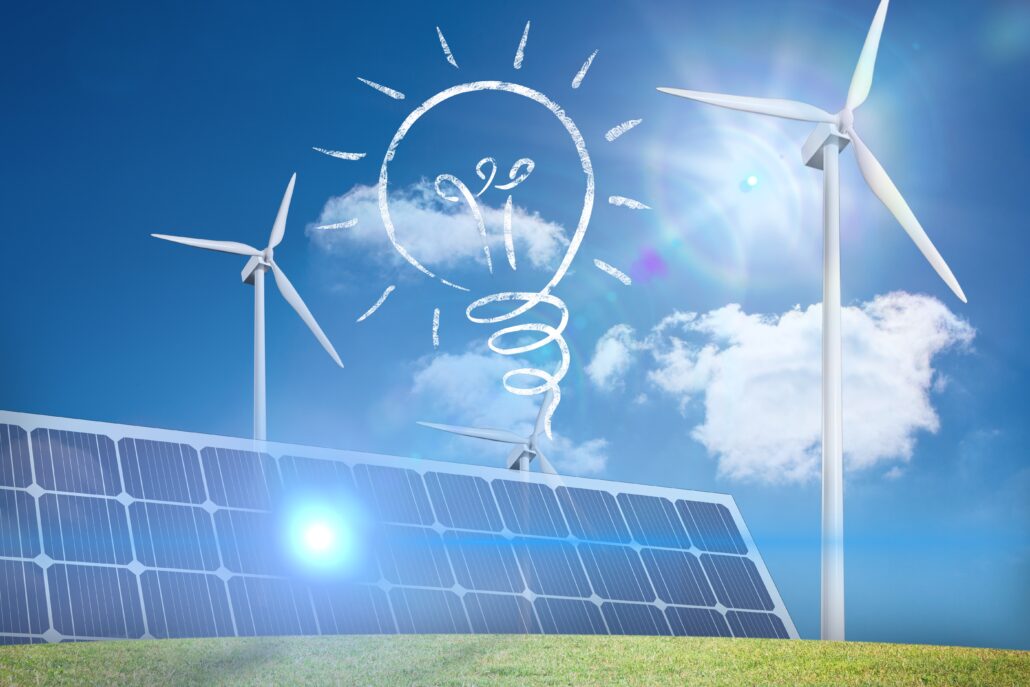Written by Chara Marmaridou, Marketing Manager at Wattcrop.
In the face of climate change and growing concerns over fossil fuel depletion, the question of whether renewable energy can power the world is of paramount importance. As the global population increases and energy demand rises, the need for sustainable, reliable, and affordable energy sources becomes increasingly urgent. Renewable energy, including solar, wind, hydroelectric, geothermal, and biomass, holds tremendous potential to meet these challenges. But can it truly power the world?
The Potential of Renewable Energy
Renewable energy resources are abundant and widely distributed across the globe. Unlike finite fossil fuels, such as coal, oil, and natural gas, renewable energy sources are inexhaustible and can be continually replenished. For instance, solar energy is available everywhere the sun shines, wind energy can be harnessed in regions with consistent wind patterns, and hydroelectric power can be generated from rivers and dams.
Moreover, advancements in technology have significantly improved the efficiency and cost-effectiveness of renewable energy systems. Solar photovoltaic (PV) panels, wind turbines, and other renewable energy technologies have become increasingly affordable, making them viable alternatives to traditional fossil fuel-based power generation.
Addressing Energy Security and Independence
One of the primary benefits of renewable energy is its potential to enhance energy security and independence. Unlike fossil fuels, which are often subject to price volatility and geopolitical tensions, renewable energy sources are domestic and locally available. By investing in renewable energy infrastructure, countries can reduce their reliance on imported fuels and strengthen their energy independence.
Furthermore, decentralized renewable energy systems, such as rooftop solar panels and microgrids, empower communities to generate their electricity and become less vulnerable to disruptions in centralized power grids. This not only enhances energy security but also fosters economic development and resilience in rural and underserved areas.

Challenges and Barriers
Despite its promise, several challenges and barriers hinder the widespread adoption of renewable energy. Intermittency and variability are inherent characteristics of certain renewable energy sources, such as solar and wind power, which can pose challenges to grid stability and reliability. Additionally, the intermittency issue necessitates the development of energy storage solutions, such as batteries, to store surplus energy for use during periods of low generation.
Moreover, the transition to renewable energy requires significant upfront investments in infrastructure and technology, as well as policy and regulatory support to level the playing field with entrenched fossil fuel industries. Access to financing, land use conflicts, and public acceptance are also important considerations that must be addressed to accelerate the deployment of renewable energy projects.
The Path Forward
While the transition to a renewable energy future is not without its challenges, the benefits far outweigh the obstacles. Renewable energy has the potential to significantly reduce greenhouse gas emissions, mitigate air pollution, create jobs, and stimulate economic growth. Furthermore, advancements in energy storage, smart grid technologies, and renewable energy integration can help overcome the challenges associated with intermittency and variability.
To harness the full potential of renewable energy and power the world sustainably, concerted efforts are needed from governments, businesses, communities, and individuals. Policymakers must enact supportive policies, such as renewable energy targets, incentives, and carbon pricing mechanisms, to accelerate the transition. Businesses should invest in research and development to drive innovation and bring down costs. Communities can embrace renewable energy solutions and advocate for clean energy policies at the local level.
In conclusion, while there are challenges to overcome, renewable energy holds immense promise as a clean, abundant, and sustainable source of power. By seizing the opportunities presented by renewable energy technologies and mobilizing collective action, we can pave the way toward a greener, healthier, and more prosperous future for generations to come.
